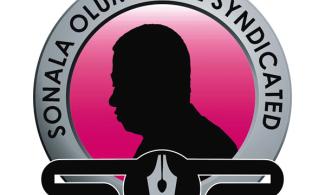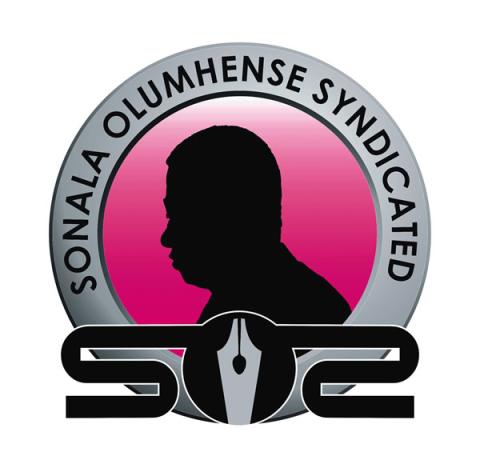
First, my sympathies go to President Muhammadu Buhari, who is battling an ear infection.
It is disappointing, however, that he chose to travel to London for his treatment. That is in itself a vote of no confidence in Nigerian medicine, including the presidential clinic at the seat of power.
President Buhari talks a good game of attacking Nigeria’s principal ailments, but for years, Nigerian leaders and their families traveling abroad for medical care has been the flip side of the coin of our poor health sector.
It is somewhat ironic that while the President is in London, another former leader, Ibrahim Babangida, is also receiving medical care in Germany. Let us reject this practice for the national embarrassment and shame that it is.
President Buhari left behind in Abuja another serious embarrassment.
Every nation’s first diplomat is its national leader, and in a period of transition or uncertainty, nationals and foreigners turn to that leader for an indication of the direction of that country.
Buhari’s direction has been quite clear, as he has always stated that he intends to combat corruption in order to set Nigeria on the road to true development. Everyone knows his catch phrase: “If Nigeria does not kill corruption, corruption will kill Nigeria.”
It is a message that was so well-received in Nigeria it won him the presidency in 2015, and the open arms of the international community.
According to Mr. Buhari himself early in his administration, the United States was one of the countries that pledged its strong support of his mission.
To that end, Nigerians learned with some relief, soon after he took office, that the US had handed over to him confidential information that included the names of many corrupt Nigerians, and the location of their stolen funds. One prominent entry was of a former Minister who had reportedly taken as much as $6billion.
It was Mr. Buhari himself last years who also disclosed that some previous government officials were returning funds they had misappropriated. The implication was that they were afraid of being caught in his anti-graft war.
In July, during a conversation with the Nigerian community in Teheran, Iran, he expressed impatience with the limited refunds that were reportedly being made.
He made it clear it was only the demands of due process of the law that was delaying the prosecution of those looters and declared he would publish their names shortly.
That was good news. It meant that Nigeria would finally be using the weapon of deterrence by naming and shaming some big thieves.
Speaking at the 15th Anyiam-Osigwe Foundation lecture in Abuja in December, President Buhari returned to that theme.
“Corrupt acts will always be punished, and there will be no friend, no foe,” he stated. “We will strive to do what is fair and just at all times, but people who refuse to embrace probity should have every cause to fear.”
Among others, he visited the Middle East early in 2016 reportedly to work with those governments concerning the repatriation of Nigeria’s stolen assets and looters. The signing with the government of the United Arab Emirates of the Judicial Agreements on Extradition, Transfer of Sentenced Persons, Mutual Legal Assistance on Criminal Matters received great acclaim in Nigeria.
The punchline to all of this was President Buhari’s announcement of his deadline for the publication of that list of infamy: May 29.
And then, something of even more amazing significance happened. In February, the Federal High Court asked the Buhari government “account fully for all recovered loot" since 1999.
The court ruled that Nigerian governments in the past 16 years have "breached the fundamental principles of transparency and accountability for failing to disclose details about the spending of recovered stolen public funds,” and that the current government must now do so, “including on a dedicated website."
That set the stage for a momentous first anniversary of the Buhari government.
The only problem is that the day arrived, and he made his anniversary speech without including that much-anticipated report.
But such was the tension and the anticipation surrounding the expected announcement that everything in his speech had actually become secondary to it. The ensuing national outrage compelled the government to declare that the Ministry of Information would make the announcement four days later.
Again, however, that date yielded no such report. As the world now knows, the “announcement” finally arrived at the end of that week through the office of the Minister of Information. But while it was informative as to what has been recovered, the report identified none of the corrupt former officials involved.
The justification given was that publishing these names might endanger investigations. While it sounds like a good reason on the surface, it is a copout; an insult to Nigerians who were expecting a seismic shift on the anti-graft terrain.
Even if that justification were to be true in some cases, it could not possibly be true in many. It was another case of wrong triumphing over right; of corruption maintaining the status quo.
In effect, it means the corrupt elements have won another round, leaving corruption in control, while the government lost a wonderful opportunity it may never regain.
Perhaps most of all, the events of that week left President Buhari’s credibility in a fog, and his road to political sainthood as broken as a federal Nigerian highway.
Again and again, he has said the right things about combating corruption, but if he is to succeed, he must fight courageously in the open where Nigerians can support him and fight with him. He must let principle, not personalities, dictate. He must err on the side of his people, not of the suspects.
Today’s war against corruption must not be mistaken for the 1983 War Against Indiscipline, which chased amorphous values and lacked measurement. Fighting corruption means fighting rich and powerful elements who are identifiable. Nobody can succeed by fighting them in instalments, in the dark, in fractions, or under their own rules.
If a war against corruption has no names or faces, or no bloodshed, it becomes a game only corruption can win.
The truth is that the crimes for which Nigeria is paying—including Boko Haram and the Niger Delta Avengers; our poor infrastructure, especially transportation and lack of electricity; a broken health system that makes it possible for the powerful and the wealthy to save themselves abroad; and an education system that is producing semi-literates—are traceable to the triumph not just of corruption, but of the corrupt and criminal over the good.
If we collaborate with corruption and the corrupt, even inadvertently; if we nurture this menace one day longer, even inadvertently; if we provide excuses in place of urgency to back up anti-graft rhetoric; if we do not name the corrupt as a way of stabbing this monster so that it might bleed to death, there is no way of indefinitely persuading hungry, restless and jobless youth that this country belongs to them, or will be theirs someday, or that it is credible and worth defending.

[email protected]
Twitter: @SonalaOlumhense